
Aerial photo shows people participating in a dragon boat race held on Xiaoshui River in Daoxian County, central China's Hunan Province. (Xinhua/He Hongfu)
This year's Dragon Boat Festival falls on June 7, but what does the festival mean in China? This quickfire Q&A will tell you all you need to know!
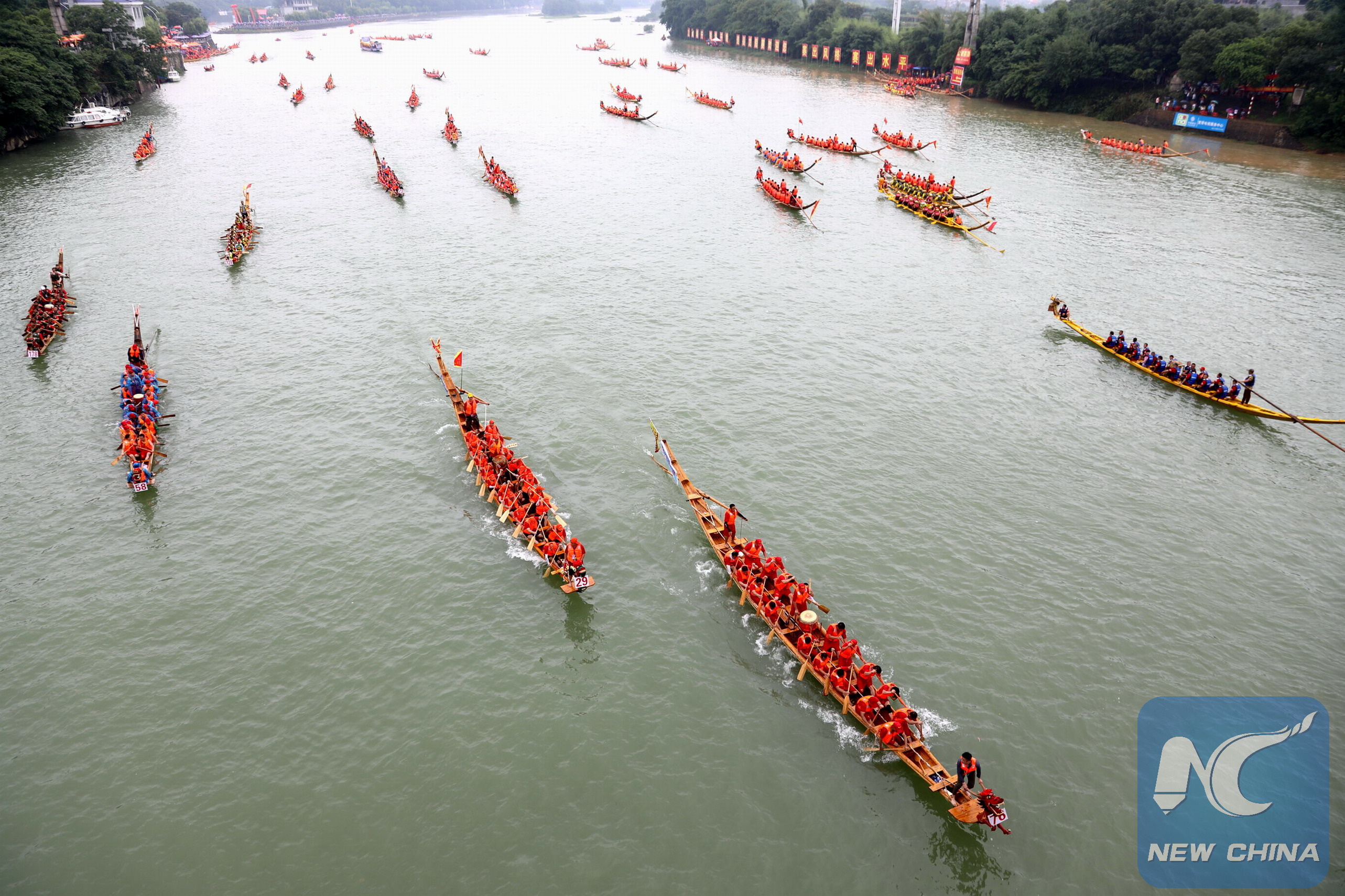
Competitors take part in a dragon boat race held on the Xiaoshui River to celebrate the upcoming Dragon Boat Festival in Daoxian County of Yongzhou, Hunan Province. (Xinhua/Wang Zichuang)
-- What is the Duanwu Festival?
The Duanwu Festival is more commonly known as the Dragon Boat Festival. With a history of more than 2,000 years, it's one of the four major traditional Chinese festivals, along with the Spring Festival (Chinese New Year), Tomb-sweeping Day (Qingming Festival), and the Mid-autumn Festival (affectionately known as the Moon Cake festival).
The Dragon Boat Festival lands on the fifth day of the fifth month on the lunar calendar, hence the name Duanwu, "Duan" meaning the beginning while "Wu" means five, signifying the fifth month.
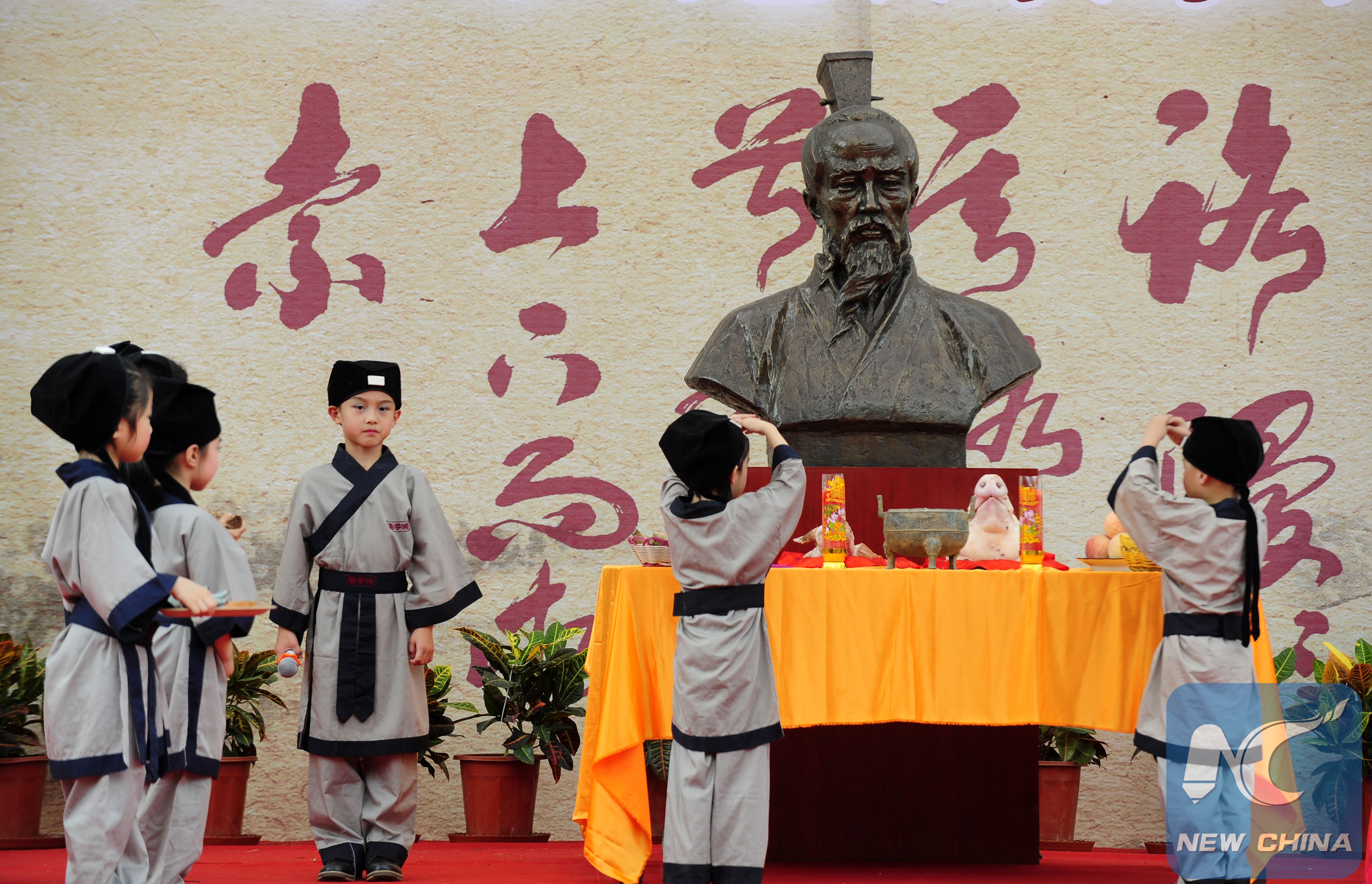
Children dressed in traditional clothes commemorate Qu Yuan, a patriot poet during the Warring State Period (475-221 BC), at the East Lake scenic area in Wuhan, capital of central China's Hubei Province. (Xinhua/Hao Tongqian)
-- Who was Qu Yuan?
If you ask most Chinese people about the Dragon Boat Festival, the name Qu Yuan will probably be mentioned.
Qu Yuan was a patriotic poet living more than 2,000 years ago. According to legend, he drowned himself in the Miluo River in what is now Hunan Province to protest corruption in his kingdom.
Other historical and legendary figures are also commemorated on the festival, including Wu Zixu, a famous official who was framed, committed suicide, and was thrown into a river on this day, and Cao E, a young woman who, in an act of filial piety, tried to save her drowned father but ended up drowning herself.
All of these figures are considered martyrs, representing selflessness and virtue in the face of injustice: a common trope in Chinese myths and legends.
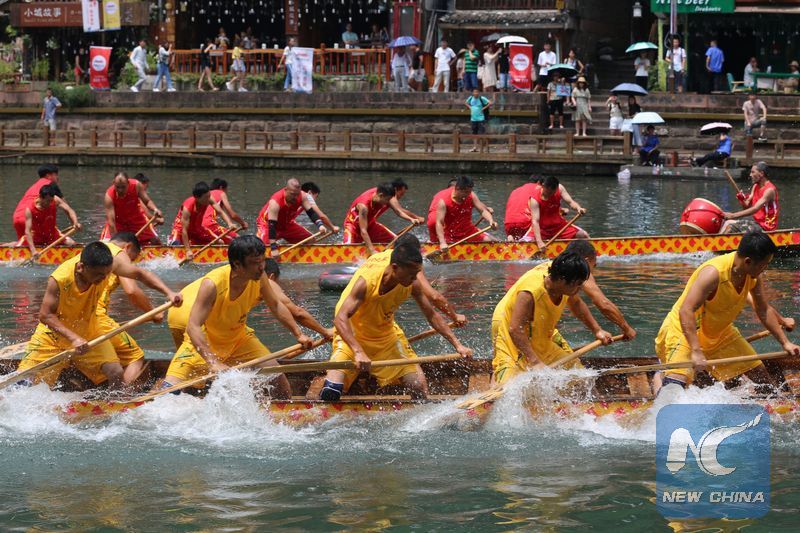
Participants compete during a dragon boat contest in the Tuojiang River of Fenghuang ancient town, Hunan Province. (Xinhua/Peng Biao)
-- What's the dragon boat race for?
The dragon boat race is thought to represent the search of Qu's body, according to some Hunan folklore researchers. After Qu jumped into the Miluo River, locals raced out in boats to rescue him or at least retrieve the poet's remains.
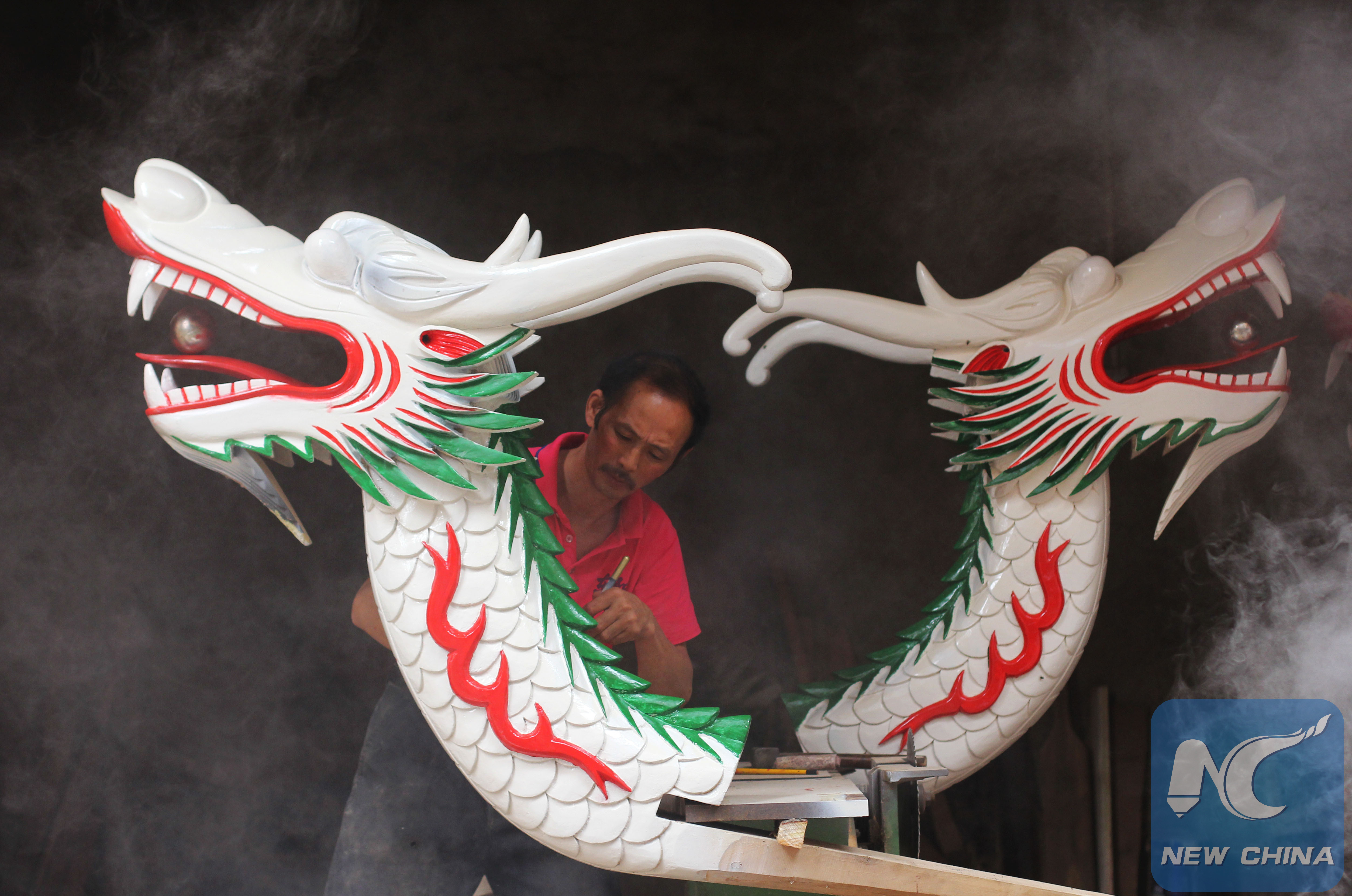
A folk artist lacquers the dragon head for the bow of a dragon boat in Daoxian County of Yongzhou City, central China's Hunan Province. (Xinhua/He Hongfu)
Another theory of the origin of the dragon boat race is related to dragon worship: It is said that Duanwu is also the day when the dragon takes to the skies. Therefore the dragon boat race is a way to worship the flying dragon.
The race has long been a means of strengthening bonds within families and communities. Today, dragon boat racing has also become a popular sport across China and even spreading to other countries.
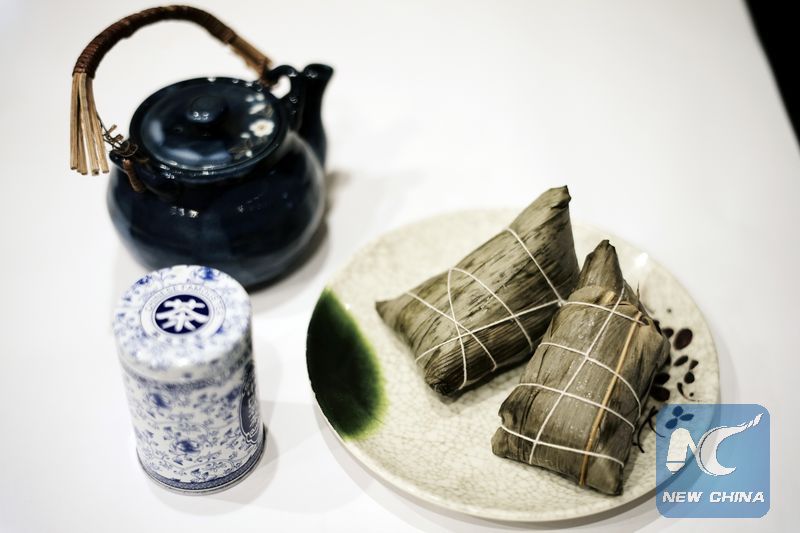
Zongzi (Xinhua/Li Muzi)
-- What are zongzi?
Making and eating zongzi is an important part of celebrating the festival. Zongzi is a kind of glutinous rice dumpling, cooked wrapped in bamboo leaves. Some say that dropping zongzi into the water will feed Qu Yuan's spirit, others say that they will keep fish from eating Qu's body.

People make zongzi in Zigui County, Hubei Province. (Xinhua/Xiao Yijiu)
Zongzi fillings vary greatly across China. Northerners prefer sweet zongzi filled with bean paste and dates, whereas southerners tend to use savoury fillings like pork and salted duck yolk. In Shaanxi Province in northwest China, locals will dip plain zongzi in honey. To the southwest in Sichuan -- a province renowned for its spicy cuisine -- people even add chilli.

A child selects sachets in a community of Yiyuan County, east China's Shandong Province. (Xinhua/Zhao Dongshan)
-- What are the other festivities?
Other activities on Duanwu are mostly superstitions that ward off evil spirits or protect against diseases in the summer heat, such as bathing in flower-scented water, wearing five-color silk, hanging plants such as moxa and calamus over the door, and drinking realgar wine.

